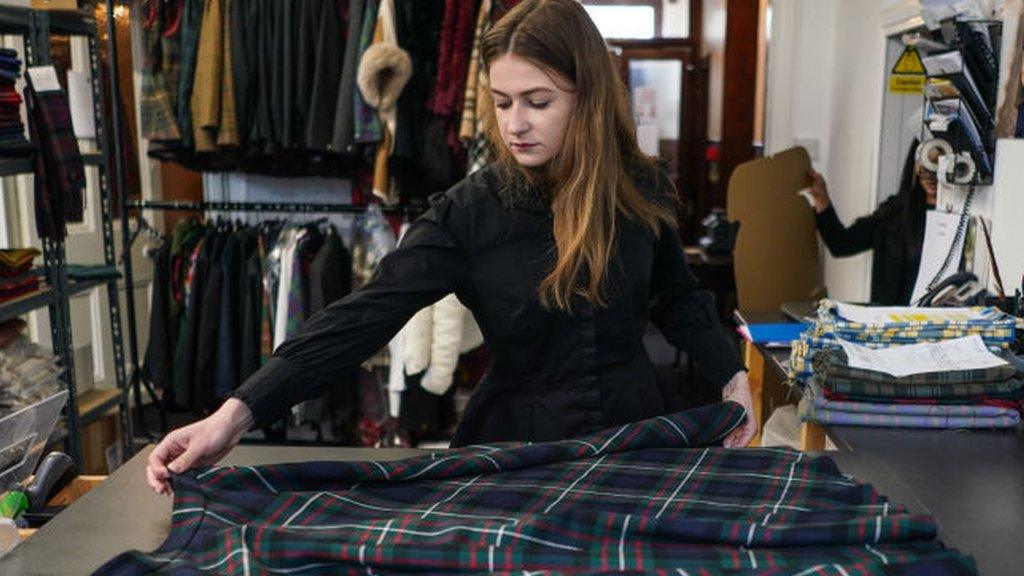Ukraine: Fleeing war, seeking refuge in Northern Ireland and deaf
- Published
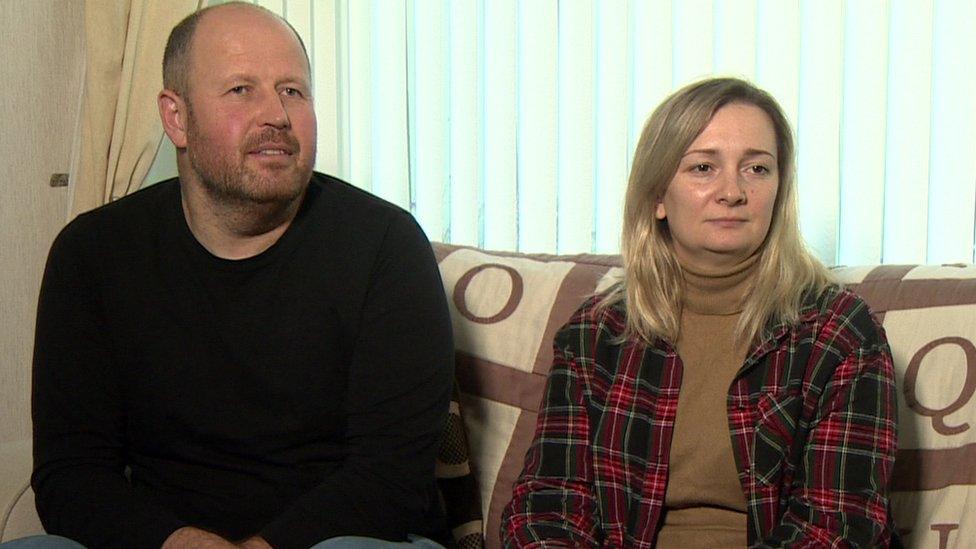
Olga and Vitalli Ibskysi are keen to get jobs but need residence permits
About 15% of Ukrainian refugees who have come to Northern Ireland need some additional support.
That could be anything from healthcare to support with disabilities.
The Executive Office said there were a number of different agencies with staff in place at the Ukraine Assistance Centres.
It said it would soon be recruiting additional support workers who could offer help and advice.
There are at least 1,842 Ukrainian refugees in Northern Ireland who have arrived under the Homes for Ukraine scheme and the Family Scheme.
The Homes for Ukraine scheme, which was launched in March, allowed Ukrainians who were fleeing the war with Russia to come to the UK - if a sponsor agreed to provide accommodation for at least six months.
Olga and Vitalli Ibskysi are a married couple from Ukraine, they are both deaf and are now living in Glengormley. north of Belfast.
Olga was alone in Kyiv when the war started.
"I could feel bombs going off, it was just terrible," she told BBC News NI.
"I spent some time in a bunker, I was the only deaf person there, that was hard, very isolating. I was very scared when I was there.
"I had a WhatsApp group with other deaf people and I really relied on that, for help and support, we kept each other afloat."
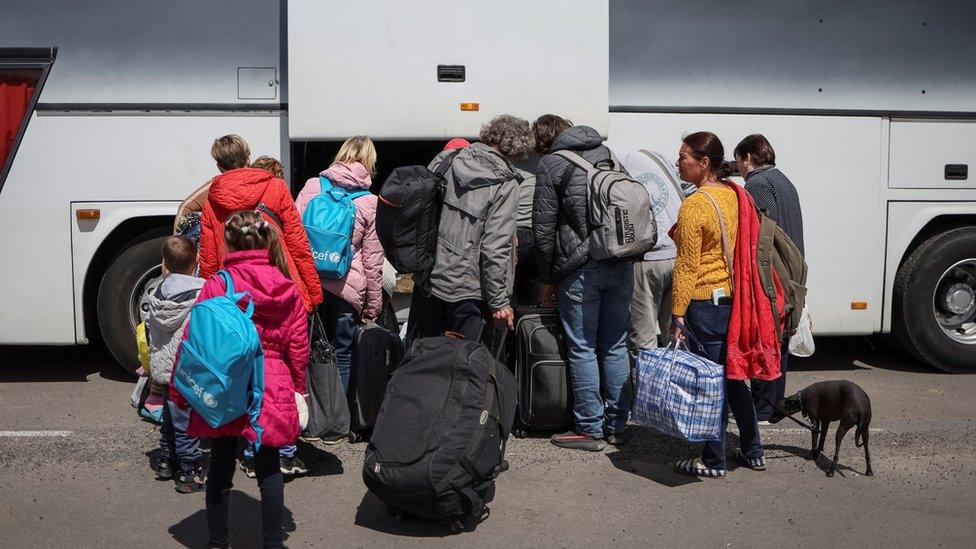
Northern Ireland is hosting almost 2,000 Ukrainians fleeing the war
Later, she reunited with her husband Vitalli, who had been working in a different part of Ukraine, and they travelled to Northern Ireland to live with Rita and Raymond Abernethy, who are also deaf.
"We have needed so much help to fill out forms and sort everything we need, Rita and Raymond have given us so much support," she said.
'Frustrating and disappointing'
Some things have been more complicated for the couple. They are still waiting for their biometric residence permits.
These permits prove a person's immigration status and make it easier for Ukrainian refugees to prove the right to employment.
All Ukrainian refugees in the UK have the right to work. , external
Olga and Vitalli are keen to get jobs.
Vitalli said he was ready to work as soon as possible.
"I can drive, I'm a trained tradesman and carpenter," he said.
"I just can't look for anything until the paperwork is sorted out. It's very frustrating and disappointing."
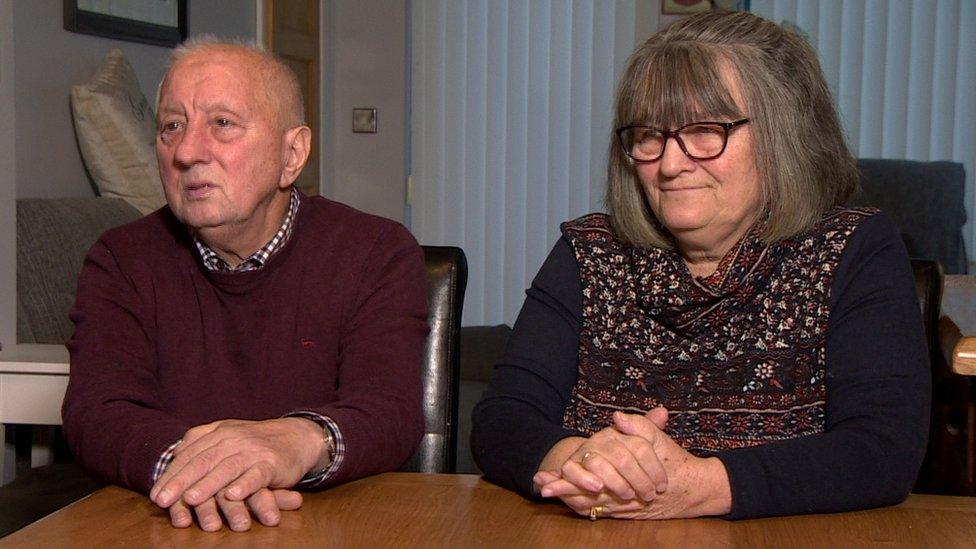
Raymond and Rita Abernethy picked up Ukrainian sign language very quickly
Pam Cameron is a Democratic Unionist Party assembly member for the area the couple are living in.
She is assisting them with their paperwork, but said things were complex with their specific needs:
"I have been trying to help them each step of the way. We do understand that the Home Office is completely swamped with cases," she added.
"I hope we can get their status settled soon to give them freedom and allow them to become an integral part of this community."
Different sign languages
Rita and Raymond decided to open their home when watching the invasion of Ukraine on the news in February.
"Seeing people flee, we wondered if there were deaf people who needed to leave, who needed support," Rita told the BBC.
"Raymond knows a Ukrainian pastor and he was able to put us in touch with those we could help."
When Olga and Vitalli finally arrived in Northern Ireland, Raymond said they were not quite sure how they were going to communicate as they use different sign languages.
"We were using Google Translate for Russian to English and back again, but after a while we picked up each other's sign language very quickly," he said.
"We use a bit of International, British, Ukrainian and now we can understand one another no problem.
"For deaf people it's easier because the languages are visual."
- Published15 November 2022
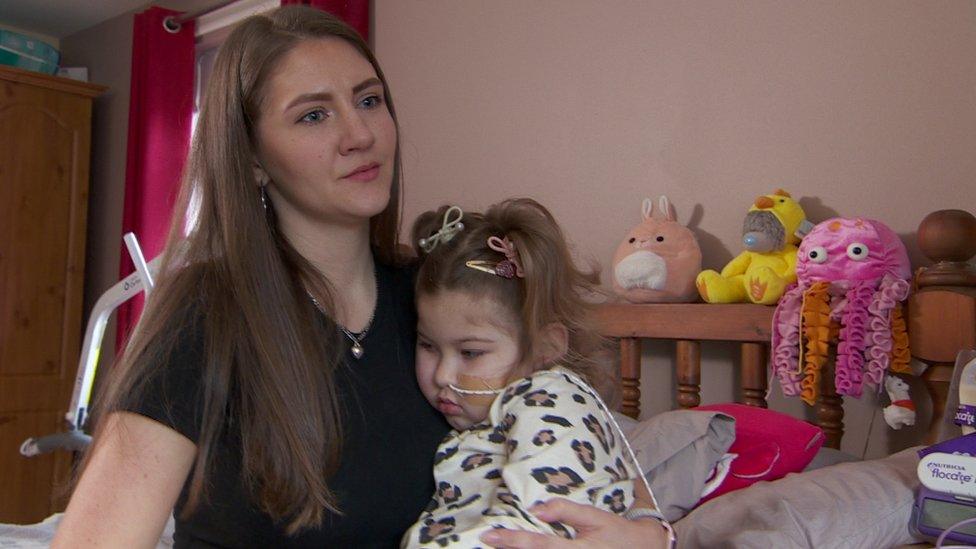
- Published26 August 2022
